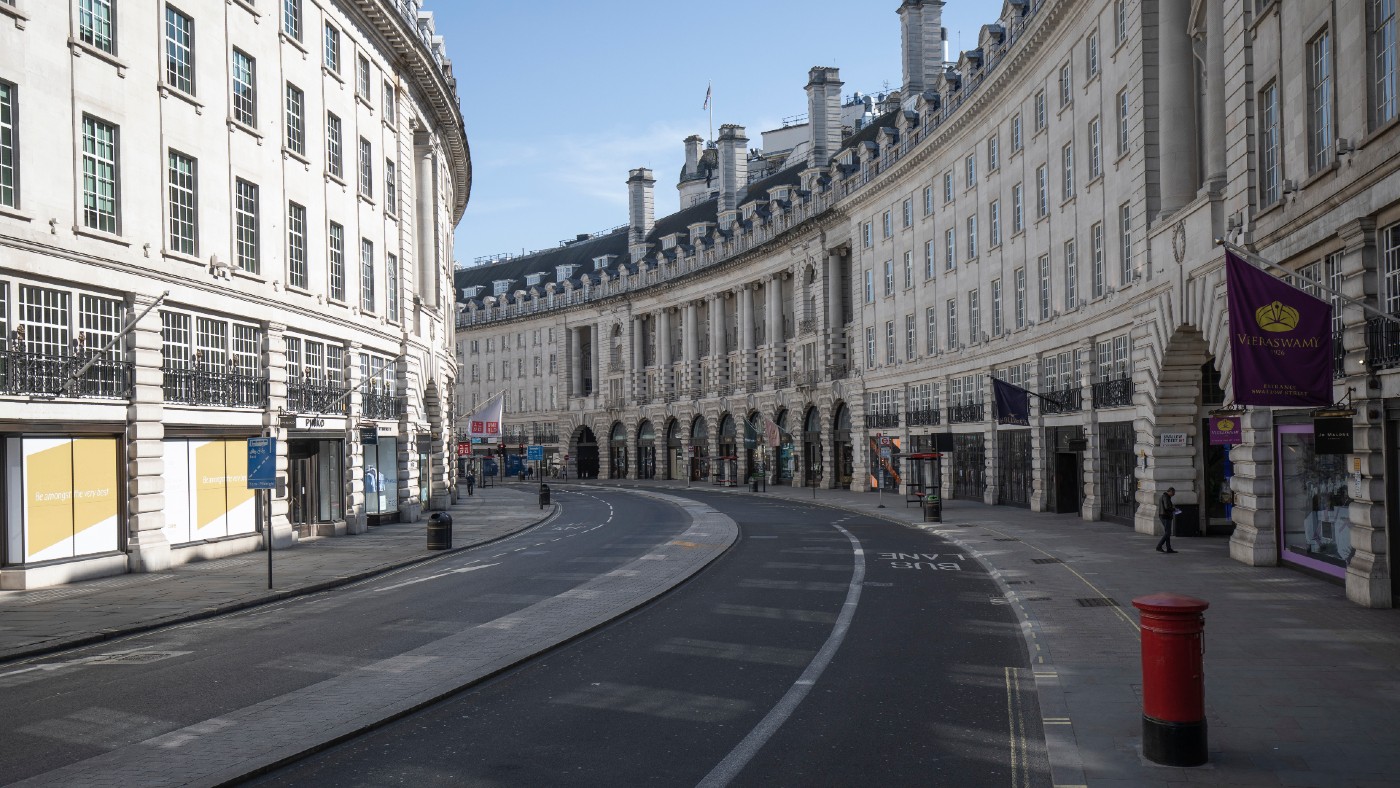£251bn: the economic cost of a year of Covid lockdowns
Cycling market goes ‘berserk’, pubs face ‘bleak future’, and other breaking business news

A free daily email with the biggest news stories of the day – and the best features from TheWeek.com
You are now subscribed
Your newsletter sign-up was successful
1. Poorer regions ‘suffered the most’ in lockdowns
Economy
The UK economy has taken a hit totalling hundreds of billions of pounds since the country first went into lockdown almost exactly a year ago, an analysis has found.
A newly published report from the Centre for Economics and Business Research (CEBR) says that the UK’s gross value added (GVA) decreased by £251bn in the past 12 months - a reduction roughly equivalent in size to the entire annual output of the southeast pre-Covid, and nearly twice the output of Scotland.
The Week
Escape your echo chamber. Get the facts behind the news, plus analysis from multiple perspectives.

Sign up for The Week's Free Newsletters
From our morning news briefing to a weekly Good News Newsletter, get the best of The Week delivered directly to your inbox.
From our morning news briefing to a weekly Good News Newsletter, get the best of The Week delivered directly to your inbox.
“This figure is derived by comparing our final pre-Covid forecasts from the beginning of 2020 with the most recent data on actual economic output,” says the report.
While the whole of the UK has suffered “huge damage” as a result of lockdown restrictions, some poorer regions have “suffered the most”, says The Guardian.
London is the region with the highest losses in activity (£54.1bn), followed by the southeast and east of England, with losses of £34.7bn and £26.6bn, respectively. But despite London’s losses being the highest, the capital’s contribution to the £251bn UK-wide losses was “smaller than expected given the size of its economy”, the CEBR adds.
The opposite is true of regions such as the west midlands, east midlands, and the east of England, where Covid-induced losses were “larger than expected given their typical contribution to the economy”.
A free daily email with the biggest news stories of the day – and the best features from TheWeek.com
2. Pubs facing ‘bleak future’
Hospitality
In the 12 months since the start of the pandemic, pubs have been one of the hardest hit industries in the UK economy. According to the Forum for British Pubs, at least 2,000 outlets have already closed permanently and the remainder will need significant financial help.
Pubs that are planning to reopen will have a “huge amount of debt”, said Dave Mountford, a publican and campaigner at the Forum for British Pubs. He told Sky News that pubs are facing a “pretty bleak future”, amid fears that “people have got used to drinking at home over the past year”.
3. Fortnite owner Epic Games worth $28bn
Entertainment
Fortnite and Houseparty owner Epic Games is finalising the terms of $1bn (£721.9m) in fresh fundraising that will see the company valued at about $28bn (£20.2bn).
Last July, Epic Games was valued at $17.3bn (£12.48bn), but the “stunning new valuation will underline the extent to which it has emerged as a corporate winner from the global coronavirus crisis”, says Sky News.
Online multiplayer video game Fortnite is the games giant’s biggest global product, with more than 350 million accounts worldwide, and 2.5 billion friend connections made using the platform.
4. Lamborghini boss ‘surprised’ by profits
Automotive
Supercar manufacturer Lamborghini enjoyed record profits in 2020, despite before forced to close its factory for two months as a result of the Covid crisis, newly released figures show.
The Italian marque, which is owned by Volkswagen, sold 7,430 cars worldwide last year - second only to the record 8,250 delivered by Lamborghini in 2019. “We were surprised,” said chief executive Stephan Winkelmann.
While turnover dropped by 11%, Lamborghini ended its financial year having clocked up £1.37bn of revenue. This year has opened with a “very positive outlook”, Winkelmann added, and deliveries in the first two months of 2021 have “already surpassed those of the previous pre-pandemic period, and the orders placed thus far already cover nine months of production”.
5. ‘Cycle market has gone berserk’
Retail
The cycling boom has “rolled into 2021” with Brits more eager than ever to buy bikes and accessories ahead of the springtime. Retailers and manufacturers are struggling to keep up with demand, with one outlet saying that customers are snapping up available stock “like piranhas”, The Guardian reports.
Peak selling season for bikes usually begins at Easter, but the cycle market has already “gone berserk”, said Peter Lazarus, head of cycling at sports retailer Decathlon. According to the Bicycle Association, January bike sales in the UK increased by 41% year-on-year.
Mike Starling is the former digital features editor at The Week. He started his career in 2001 in Gloucestershire as a sports reporter and sub-editor and has held various roles as a writer and editor at news, travel and B2B publications. He has spoken at a number of sports business conferences and also worked as a consultant creating sports travel content for tourism boards. International experience includes spells living and working in Dubai, UAE; Brisbane, Australia; and Beirut, Lebanon.